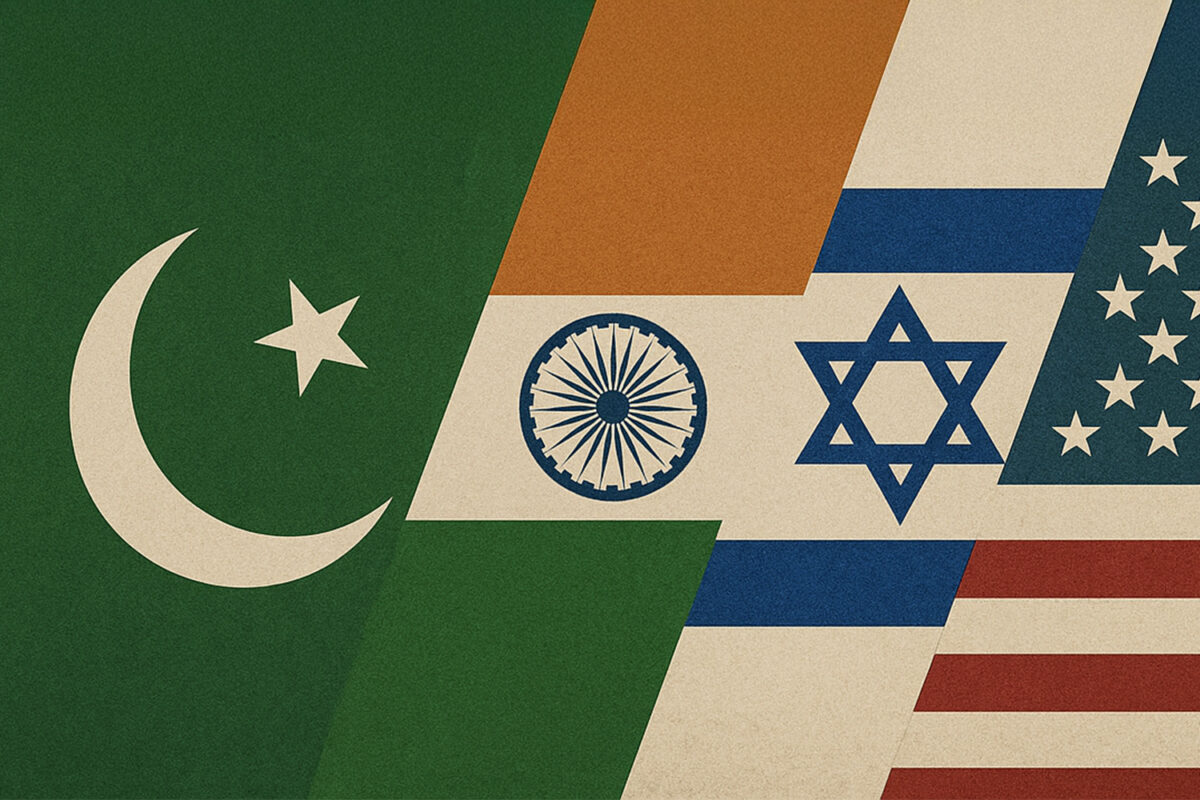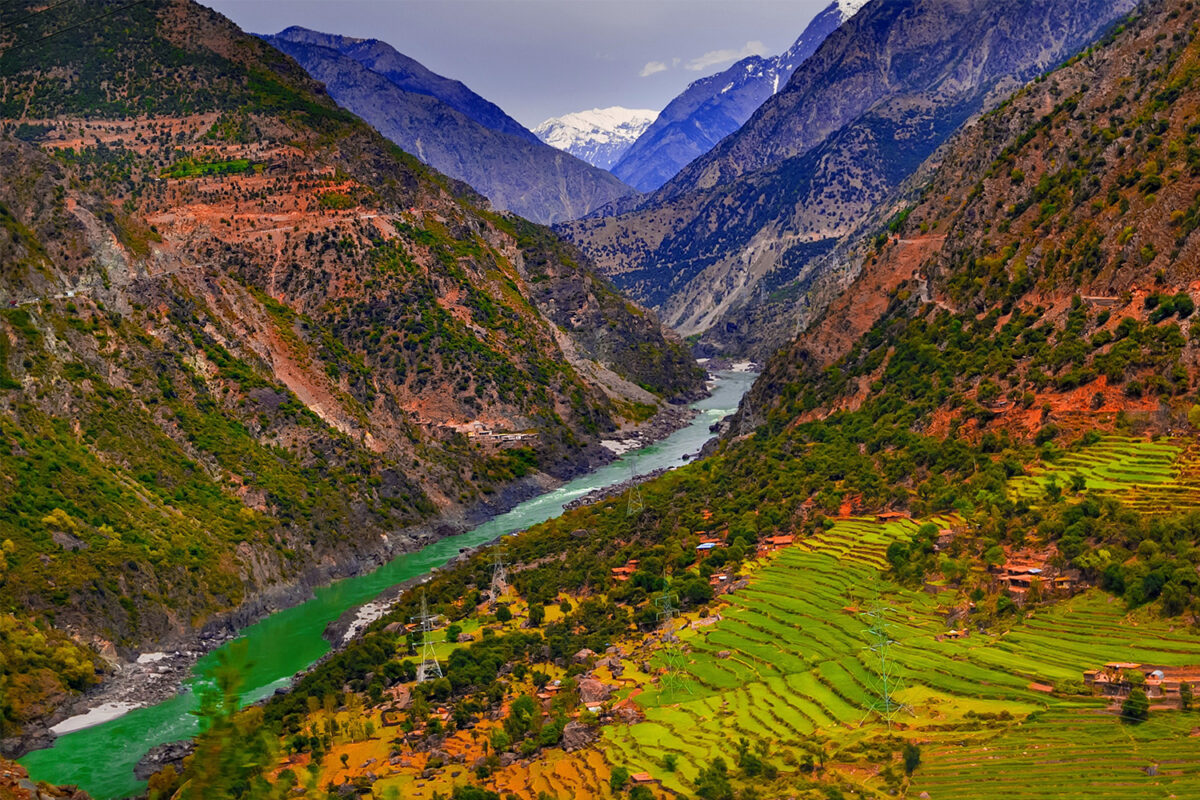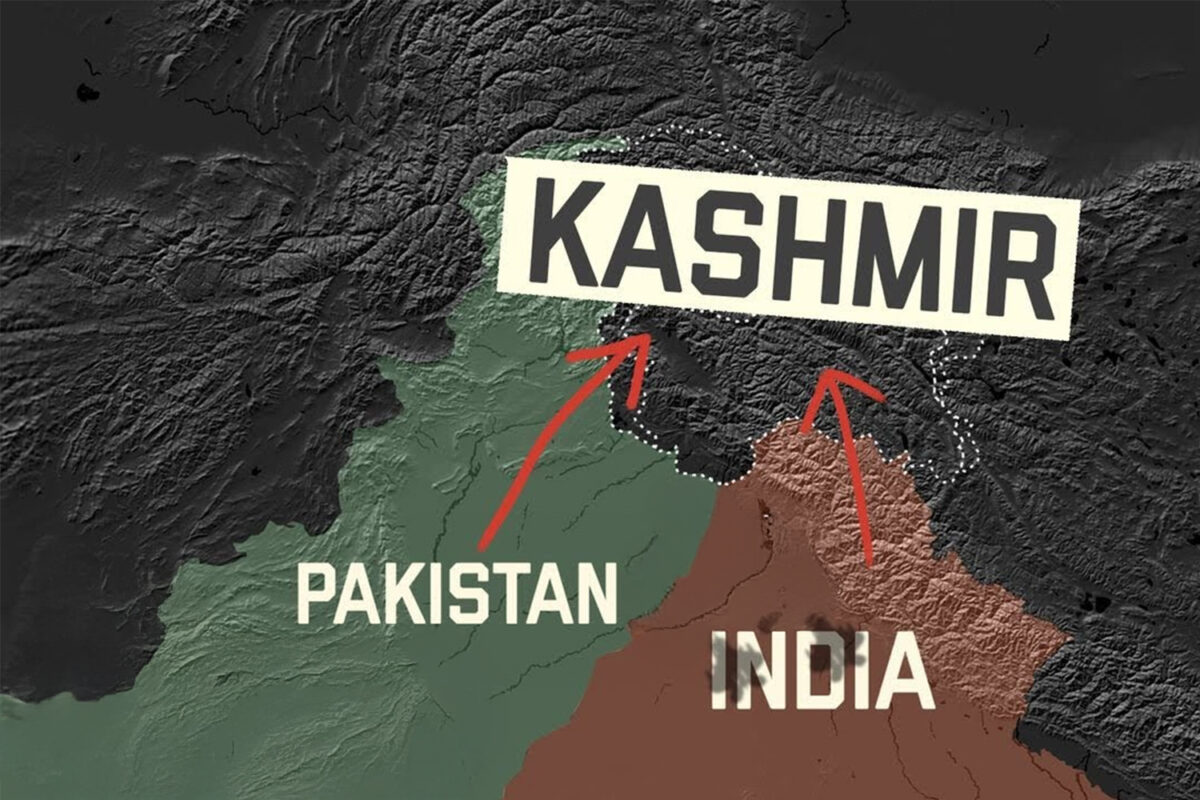In this Geopolitics of Israel series, we looked at the countries bordering Israel and how over the course of three decades Israel used wars, secret talks and normalisation to deal with the enemies on its frontiers. Israel’s strategic dilemmas meant she needed to look beyond the Arab nations and the periphery doctrine was borne out of this where Israel attempted to develop economic, commercial and security relations with the non-Arab nations such as Turkey and Iran. Whilst Israel is now normalising relations with the Gulf nations, she realised early on that the majority of Muslims were in Asia rather than the Middle East and having relations with these nations in Asia with sizeable Muslim populations would give her the much needed legitimacy she needed and open the regional Arab nations to normalisation.
Whilst the birth of Islam was in the Middle East today over 700 million Muslims are resident in Asia rather than the Middle East. South Asia has a large concentration of Muslims and as it does not share a border with Israel the Israelis believed developing ties with these nations would provide her with legitimacy. Israel has tried to use the carrots of commercial, technological and defence deals with the Muslims nations beyond the Middle East. Israel’s agricultural and healthcare technologies are highly sought after by governments and businesses around the world. Israel and the United Arab Emirates (UAE) agreed to jointly develop a COVID-19 vaccine as a part of their new normalisation deal. Israel has also been prepared to sell the Iron Dome defence system and other high-end defence technologies as a way to forge new relations.
Pakistan: Public Opinion Doesn’t Support Israel
Israel found an ally in South Asia that has a population of 200 million Muslims, but is not an Islamic nation. India has full diplomatic relations with Israel and they are now extensive and cover terrorism, defence and intelligence. India is seen by Israel as its closest ally in Asia. Israel has always seen Pakistan as the key Muslim nation in the region and the world. Some Israeli leaders have expressed the belief that should diplomatic relations with Pakistan be established, then Pakistan could serve as a bridge between Israel and the Muslim world.[1]
Pakistan provided assistance and support to the Arab armies in the 1948 wars, the Six-Day War and the Yom Kippur War. The Pakistan Air Force sent some fighter pilots to engage the Israelis in the 1967 Six-Day War and the 1973 Yom Kippur War, greatly bolstering the Palestinians who virtually had no foundation to fight the superior Israeli forces. A Pakistani fighter pilot, Saiful Azam, shot down at least four Israeli fighter planes during the Six-Day War.[2] After the Yom Kippur War, Pakistan and the PLO signed an agreement for training PLO officers in Pakistani military institutions.[3] But despite their hostilities, during the Cold War both nations were on the same side in the Western bloc and when the Soviet Union invaded Afghanistan in 1979 both countries increased cooperation and coordination, especially at the intelligence level. President Muhammad Zia-ul-Haq directed the Inter-Services Intelligence (ISI) in the 1980s to establish contact with Israel’s Mossad.[4] Intelligence offices were set up at both countries’ embassies in Washington, DC where the ISI, MI6, CIA and Mossad ran a decade-long anti-Soviet operation.[5] WikiLeaks, in a disclosed US diplomatic cable revealed that in 2008, Pakistan’s ISI had secretly passed on vital intelligence and data to Mossad, alluding to a possible major attack by terrorists in Mumbai that Israeli civilians may be targeted.[6] This turned out to be the Mumbai terrorist attacks where a Jewish centre was attacked.
Whilst Pakistan does not officially recognise Israel and officially has no ties with the country, Pakistan’s security establishment have on multiple instances had covert coordination and cooperation with Israel. Several Pakistani leaders, from former President Pervez Musharraf to current Foreign Minister Shah Mahmood Qureshi, have called for better relations with Israel. In 2005, Musharraf made a bold public statement by shaking hands with the then Israeli Prime Minister Ariel Sharon in Istanbul. What has stopped the military and civil leadership has been public opinion in Pakistan and the support the Muslims of Palestine have amongst the Pakistani public. The landing of an Israeli jet in Islamabad in 2018 forced the regime to issue repeated denials of a visit by an Israeli delegation. This confirms that what the civil and military leaders want is the opposite to what their people demand.
Bangladesh: Palestine, Not Israel
Whilst Israel supported Bangladesh’s liberation struggle, from the very beginning of its independence, Bangladesh maintained that Palestine was occupied and Israel had no right to exist. As a result there are no diplomatic relations between Israel and Bangladesh and Bangladeshi passport holders are prohibited from visiting Israel. In November 2003, Bangladeshi journalist Salah Choudhury was arrested for attempting to fly to Tel Aviv and sentenced to a seven-year prison term.[7] But despite having no diplomatic relations with Israel, Bangladesh has exported small amounts of merchandise goods to Israel over the last few years.[8]
Public opinion in Bangladesh is like Pakistan which supports the Muslims of Palestine and views Israel as the occupier. Bangladesh’s military are known to have pro-Palestinian views. In the nation’s domestic politics, political parties accuse each other of having relations with Israel as a slur. Some in the country’s media have tried to bring forward the possibility of establishing relations with Israel by publishing content that is pro-Israeli. Whilst the country’s rulers have not brought legal challenges against such outlets, it by no means publicly calls for the recognition of Israel due to public opinion in the country.
Bangladesh has no diplomatic relations with Israel and unlike Pakistan no overt or covert relations between two governments are known. But, there are indications of normalisation. In a recent visit to Turkey the Bangladesh Foreign Minister expressed that “We look forward to that the Palestinian people have their homeland. We believe in the two-state solution. There must be the state of Israel as well as the state of Palestine with Jerusalem as its capital. That’s our principal position, the cardinal principle position.”[9] This was in the context of the deal of the century which has seen the Gulf States normalise relations with Israel.
Slow Progress in South-East Asia
Israel for long hoped to have normal relations with Indonesia, the most populous Muslim nation. During the Cold War both countries transferred military hardware and shared intelligence on global communist terrorist groups. Some counter-battery radars for accurate artillery fire were bought by the Indonesian military from the Israel Military Industries (IMI Systems) in 1971. In 1975, the Indonesian Navy and Indonesian Air Force sent a 60-man team to Israel to learn special insertion and covert operations from Shayetet 13 and the Israeli Navy. In 1999, after the fall of Suharto, Indonesian President Abdurrahman Wahid and Foreign Minister Alwi Shihab mentioned their wishes to open ties with Israel although only at the level of economic and trade links. Wahid believed that Indonesia had no reason to be against Israel. He pointed to the fact that Indonesia has “long-term relationships” with China and the Soviet Union, two countries he viewed as having atheism as part of their constitutions, and further explained that Israel “has a reputation as a nation with a high regard for God and religion.”[10] However, after Wahid’s removal from office in 2001, no effort was maintained to improve the relations between Indonesia and Israel.
In 2012, Indonesia agreed to informally upgrade its relations with Israel and to open a consulate in Ramallah, headed by a diplomat with the rank of ambassador, who also would have unofficially served as his country’s ambassador for contacts with Israel. The move took five years of sensitive deliberations, but due to public pressure and Indonesia’s insatiable domestic politics this agreement was never implemented.
Israel has faced similar challenges in South-East Asia’s other Muslim nation, Malaysia. Led by a nationalist Islamic party, the Malaysian government carries out indirect trade, often through Singapore, with Israel to avoid blowback from its large Muslim population. Trade is small between the two countries and reached around $1.53 billion annually.
Israel has found the Muslims of South and South-East Asia a major obstacle in its attempts to normalise its existence. Whilst Israel has found support amongst the regimes in South Asia, the rulers have been reluctant to publicly espouse normalisation with Israel due to the support the Muslim nations have for the people of Palestine. Whilst the carrots of defence and commercial “tech deals” have been dangled in front of the rulers of South Asia, for the people the ideological affinity with the Palestinian struggle trump’s such material gains.
[1] Bhutto wanted ties with Israel, sought Mossad protection. Israel Today, December 28, 2007
[2] See, https://militaryhistorynow.com/2013/08/21/have-jet-will-travel-the-amazing-story-of-saiful-azam/
[3] Mushahid Hussain, “How Pakistan Views Israel and the Palestinians”, Middle East International, September 1988, 21; P. R. Kumaraswamy, Beyond the Veil: Israel–Pakistan Relations (Tel Aviv: Jaffee Center for Strategic Studies, Tel Aviv University, 2000), 34
[4] Charlie Wilson’s War: The Extraordinary Story of How the Wildest Man in Congress and a Rogue CIA Agent Changed the History of Our Times, by George Crile, Grove Press, 2007, Chapter 10.
[5] Pakistan got Israeli weapons during Afghan war, Daily Times, 30 September 2003, https://web.archive.org/web/20030930073002/http://www.dailytimes.com.pk/default.asp?page=story_20-7-2003_pg1_4
[6] WikiLeaks: Pakistan passed terror intel to Israel, Jerusalem Post, 1 December 2010, https://www.jpost.com/Defense/WikiLeaks-Pakistan-passed-terror-intel-to-Israel
[7] Bangladesh editor gets 7 years for attempted Israel trip, The Times of Israel, 9 January 2014, https://www.timesofisrael.com/bangladesh-editor-gets-7-years-for-attempted-israel-trip/
[8] See, https://en.prothomalo.com/business/Bangladesh-exports-unknown-goods-to-Israel
[10] A Friend of Israel in the Islamic World, Haaretz, 7 July 2004, https://www.haaretz.com/1.4751284




